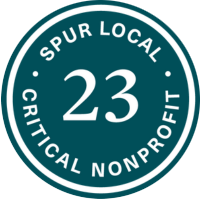Testimony in Support of HB1002
Correctional Facilities – Restrictive Housing
TO: Chairman Luke Clippinger, Vice Chair Vanessa Atterbeary, and members of the House Judiciary Committee
FROM: Jo Shifrin, member of Jews United for Justice
My name is Jo Shifrin. I live in District 16 in Bethesda, and I am here today to support HB 1002, a bill sponsored by Delegate Jazz Lewis to prohibit the release of an incarcerated person directly from restrictive housing into the community. I am testifying on behalf of Jews United for Justice (JUFJ), an organization with more than 5,000 members across Maryland. JUFJ brings people together who want to act on our shared Jewish values by pursuing social and economic justice and racial equity in our local communities.
Earlier in my life, I was a GED* tutor for prisoners. I saw first hand the damage that prisons do to people. When prisoners came out of solitary, and went into the general population, they were fearful and paranoid. Isolation is a frequent cause of post-traumatic stress disorder (PTSD) and fosters behavioral problems and mental health conditions including anxiety, hallucinations, anger, psychosis, depression, cognitive disturbances, and paranoia.
Maryland’s restrictive housing, in which two prisoners are held in a cell no bigger than a parking space for 22 hours a day, does not rehabilitate inmates or prepare them to rejoin society. The trauma caused by restrictive housing is comparable to the effect of solitary confinement.
The harm we do to inmates kept in restrictive housing creates damaged human beings who have a harder time integrating into society and may pose a risk to members of our communities and themselves. In order to re-socialize inmates, they should be given opportunities to participate in programs in a group setting; they should receive counseling; they should be given assistance in finding housing and obtaining state and federal benefits; they should be given: substance abuse education and treatment; job readiness and pre-employment training; training in conflict resolution, vocational skills, parenting; etc so that they are ready to live outside the prison walls, able to make decisions, and to minimize their use of violence to resolve issues.
JUFJ respectfully urges a favorable report of HB1002.
*GED is a general education diploma which can be obtained by someone who has not graduated from high school and who studies for and passes the GED exam.





